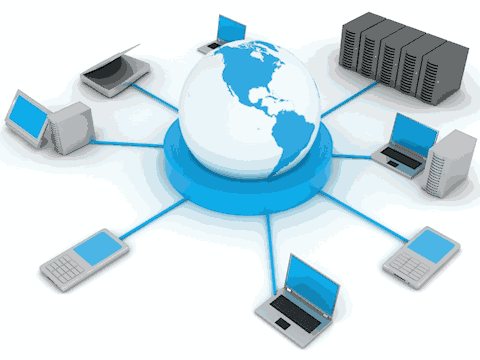BIG SECURITY FOR SMALL & MEDIUM ENTERPRISES
By Biodun Jagun
Organizations of all sizes are now significantly reliant on the Internet and other forms of information technology for the operation of their business activities. Survey show 78% of Cyber attacks towards SMEs had originated from the Internet. This therefore has a consequent requirement to ensure that their (SMEs systems) workstations, laptops inclusive of smart device and data are appropriately protected against security breaches resulting from the use of the Internet.
consequent requirement to ensure that their (SMEs systems) workstations, laptops inclusive of smart device and data are appropriately protected against security breaches resulting from the use of the Internet.
Unfortunately, however, there is evidence to suggest that security practices are not strongly upheld within the SME environments. SMEs are characterized by lack of adequate attention to IT security and have caused the protection of systems as a growing problem, with related responsibility frequently unassigned, or allocated to someone without appropriate qualification thus giving room to high likelihood of a security incident within the organization.
Such security incidents usually result in financial losses to the SMEs, reputation damage, disrupt the business continuity and sometimes may also have legal implications. With such insinuations SMEs would do well to ensure that they are appropriately protected.
Secure and Trusted Alliance Services (STA) – an IT and Telecoms Servicing Engineering Company in conjunction with an Israeli based Internet Security Focused company – CheckPoint Software Technologies Limited brings to the SMEs, a Multi Network Internet Security solution in a single appliance to forestall the rising cyber threats being experienced in the SME space. At a minimum the solution provides the following:
1. Stateful Firewall Function
2. VPN Support
3. Secure Web Gateway- SWG functionality ( Anti- Bot, Anti –Virus, Anti- Spam, URL/Web Filtering and Applications Control)
4. Network Intrusion Prevention
“So What does this mean for the SMEs”?
Interestingly , majority of SMEs believe they are too small to be targets of cyber- attacks and tend not to pay enough attention around securing their networks from their increasing reliance of the Internet as a business tool. From previous research by The Wall Street Journal , it has shown that when SMEs suffer from a cyber-attack they often don’t recover! Cyber- Attacks in most cases result in financial losses, reputation damage, and in some very severe cases legal consequences.
In 2012 alone 67% of Medium Enterprises (11-100 employees) recorded data breaches/losses. Some Medium Enterprises are sometime oblivious of these data breaches or losses. SMEs are becoming the cybercriminal’s “sweet spot” due to, in some cases the inadequate and deserved attention around implementing a Secure Gateway to the Internet within their organizations. This may be due to lack or low budgetary allocations or qualified personnel thus making the SMEs a good target for cybercriminals and attacks. Within the SMEs environment there is sufficiently valuable information to make it worth an attacker’s time but the SMEs protection level of its Internet Network is typically weaker than that of a larger enterprise that have large budgets to cater same.
“So What should SMEs do?”
SMEs need enterprise level protection without the complexity, cost and expertise attached to similar deployment for Large Enterprises. This means they need security that consolidates the functions to achieve a high level of protection, security that doesn’t require a large staff or (deep expertise) and security that just works, right out of the box. The same protection used by large enterprises and the Fortune 100 is now easily accessible for SMEs. STA in partnership with Check Point has removed the complexity and need for expertise required to set up complex security devices, the very issue that SMEs have faced. The Next Generation Firewall (NGFW) is now available in a simpler, easy to use, easy to manage for SMEs in an all in one appliance thus offering “BIG Security for SMEs” The Check Point 600 Appliance simplifies achieving strong protection for the SMEs. The capabilities that the Check Point 600 Appliance brings to SMEs can be broken down into 3 categories: Controlling access to your network, Prevent Attacks and Threats, and Protecting Business Data.
Control Access to Your Network: SMEs need to ensure that only authorized traffic and users are allowed to access the network. They must also ensure that only appropriate websites are accessed by users.
• Firewall—Ensures only the traffic that should be allowed on the network traverses the network. Prohibited traffic is blocked before it ever enters the network.
• Application Control and URL Filtering—These capabilities work together to ensure that only allowed applications are used on the network and that only allowed websites can be visited.
• User Awareness—Allows an organization to have polices in place that will allow or prohibit what specific people can do, based on their identity or role in the business.
• QoS—Quality of Service allows you to give priority to your most important traffic.
Prevent Attacks and Threats
Large enterprises use high levels of protection to defend the business from threats. Small businesses now can leverage these threat prevention technologies to defend their business.
• IPS—Intrusion Prevention Systems search traffic for attacks targeting business computers and devices. Computers and devices that do not have the latest patches are protected by the IPS.
• Anti-Virus—Malware such as viruses and worms are prevalent and can cause major damage. Anti-Virus blocks malware before it can get into the network.
• Anti-Spam—Unwanted email is an issue for any business. Anti-Spam blocks SPAM email messages that can also often deliver malware or lead users to malicious sites.
Protect Business Data
When computers communicate with other computers or remote users, the information can be captured by attackers if it is not encrypted. Virtual Private Networks (VPN) encrypt data traversing the network allowing only the intended receivers to read the information.
• Remote Access—Encrypts traffic from PC’s and user devices to the network, whether they are in the office or on the road.
• Site-to-Site VPN—If a business has multiple offices, this VPN encrypts all communications between multiple office locations.



